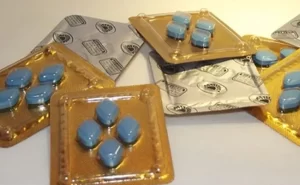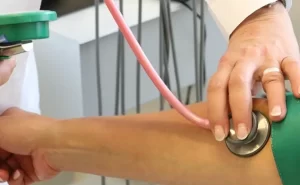Sperm Motility Issues Refer to Problems Related to the Ability of Sperm to Move Effectively
Sperm motility issues refer to difficulties in sperm locomotion. Sperm motility refers to the capacity of sperm to propel themselves and navigate the female reproductive system to successfully encounter and fertilize an egg.
There exist four distinct categories of sperm motility:
- Progressive motility refers to the movement of sperm directly and linearly.
- Non-progressive motility refers to the movement of sperm in a wavering or irregular path instead of a straight line.
- Immotile sperm refers to sperm that exhibit no movement whatsoever.
- Agglutinated sperm refers to sperm cells being grouped or clustered together.
Progressive motility of 32% or higher is considered within the range of normal sperm motility. Asthenozoospermia, or poor sperm motility, is diagnosed when less than 32% of sperm exhibit progressive motility.
If you have concerns with your sperm motility, it is advisable to consult with your doctor.
Reduced sperm motility can hinder the ability of sperm to reach and successfully fertilize an egg, resulting in the inability to conceive or reproduce.
Several factors can contribute to reduced sperm motility, including:
Underlying medical disorders, including hormone imbalances, infections, and varicoceles (abnormally enlarged veins in the scrotum), can reduce sperm motility.
Lifestyle variables, including smoking, excessive alcohol consumption, illicit drug use, and being overweight or obese, might contribute to decreased sperm motility.
Environmental variables, such as the presence of certain chemicals, such as pesticides and herbicides, can contribute to reduced sperm motility.
If you have concerns with your sperm motility, it is advisable to consult with your doctor. A semen analysis can be conducted to assess the motility of your sperm and other related factors. If you are experiencing low sperm motility, your doctor can assist you in identifying the root reason and provide recommendations for treatment alternatives.
If your sperm motility remains low despite implementing these lifestyle modifications…
There are several measures you can take to enhance your sperm motility, including:
Cease the habit of smoking.
Constrain your consumption of alcohol.
Refrain from the use of illicit substances.
If you are overweight or obese, engaging in weight loss activities is advisable.
Engage in frequent physical activity.
Consume a nutritious diet.
Minimize or alleviate stress.
If your sperm motility remains low despite implementing these lifestyle modifications, your physician may suggest alternative interventions, such as:
Treatment: Several drugs are available to enhance sperm motility.
Surgery may be considered a viable solution if you are experiencing reduced sperm motility due to a varicocele or any other underlying medical problem.
Assisted reproductive technologies (ART) encompass procedures such as in vitro fertilization (IVF) and intracytoplasmic sperm injection (ICSI). These techniques can help couples who have low sperm motility in achieving conception.
Assisted reproductive technologies (ART) have significantly transformed the area of reproductive medicine, providing optimism to countless families grappling with infertility. Procedures like in vitro fertilization (IVF) and intracytoplasmic sperm injection (ICSI) have proven to be quite successful in assisting couples in conceiving, mainly when infertility is caused by low sperm motility.
By introducing a solitary, viable sperm into the egg, the likelihood of fertilization is greatly enhanced.
In vitro fertilization (IVF) is a procedure in which an egg is fertilized outside the body, namely in a laboratory dish, and subsequently implanted into the woman’s uterus. This treatment is especially beneficial for couples in which the male partner exhibits limited sperm motility, as it circumvents the requirement for the sperm to actively move towards the egg. Alternatively, the sperm is directly introduced into the egg, enhancing the likelihood of fertilization.
Intracytoplasmic sperm injection (ICSI) is a highly sophisticated variant of in vitro fertilization (IVF) in which a solitary sperm is directly injected into the egg. This treatment is especially beneficial in cases where the male partner exhibits a significantly low sperm count or when the sperm demonstrates suboptimal motility or morphology. By introducing a solitary, viable sperm into the egg, the likelihood of fertilization is greatly enhanced.
Both in vitro fertilization (IVF) and intracytoplasmic sperm injection (ICSI) have demonstrated significant efficacy in assisting couples with low sperm motility to achieve conception. Indeed, these techniques have proven to be quite effective in enabling numerous couples to overcome infertility, thereby bringing immense happiness to families worldwide.
If you are experiencing difficulties conceiving and you have concerns regarding your sperm motility, it is advisable to consult with your doctor.
Nevertheless, it is crucial to acknowledge that assisted reproductive technology (ART) operations can be costly and are not universally covered by insurance. Moreover, these procedures include inherent dangers, including the possibility of multiple pregnancies and ovarian hyperstimulation syndrome. Individuals contemplating Assisted Reproductive Technology (ART) should thoroughly discuss the potential hazards and advantages with their healthcare physician. Additionally, they should anticipate the emotional and financial obstacles accompanying the procedure.
Generally, assisted reproductive technology (ART) operations provide optimism for couples with infertility, especially those with reduced sperm motility. Thanks to these technologies, numerous couples have successfully realized their aspiration of initiating a family and have had the opportunity to encounter the pleasures of motherhood.
If you are experiencing difficulties conceiving and you have concerns regarding your sperm motility, it is advisable to consult with your doctor. They can assist in identifying the root reason for your decreased sperm motility and provide treatment recommendations.













